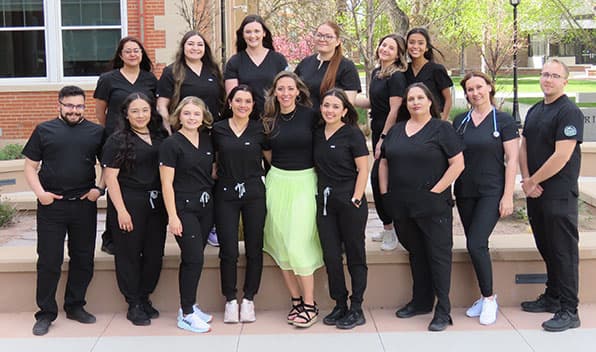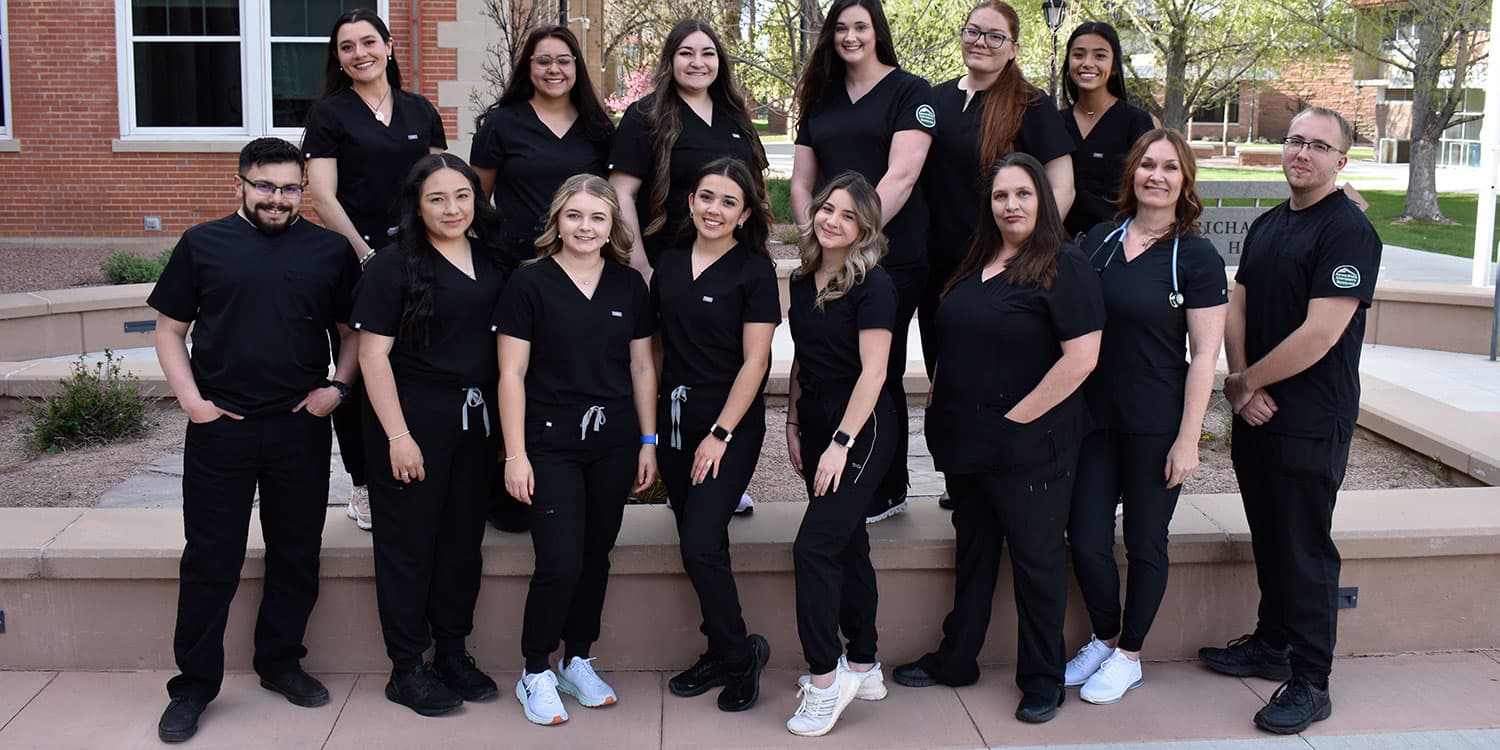All 14 graduates of Adams State University’s 2023 class of nursing students passed the NCLEX licensing exam on their first attempt, allowing them to become registered nurses.
Administered by The National Council of State Boards of Nursing (NCSBN), the NCLEX is widely accepted as a premier exam for assessing nursing graduates’ critical thinking and clinical judgment. In 2023, a newer version of the NCLEX was implemented as NCSBN introduced major changes to the exam’s format, with more emphasis on scenario-based problem solving.
“NCSBN has made changes in the past, but nothing like this. They really raised the bar,” said Kimberly Chacon, associate professor and interim director of the School of Nursing at Adams State. “There was some expectation among nursing programs that the change would translate to a dip in pass rates. So, we are elated and proud that our students and faculty rose to the challenge.”

Chacon credits an extraordinary group of students and the faculty who guided them. “These students knew they were the first cohort to take the new test; they really wanted us to get them where they needed to be to feel prepared.”
Vice President of Academic Affairs Margaret Doell, M.F.A., “This was an over-the-top achievement by the entire nursing program. This department has proven itself to be elite nationwide.”
Faculty did their part by engaging in professional development on how to best guide students through the curriculum. As a result, they pressed students to apply critical thinking and clinical judgment to real-world scenarios.
“Say, for example, we present a patient who has pneumonia. They also have a four-year-old at home, and they’ve lost their job. To be successful as nurses, we want them to think about the big picture when they’re out in the field,” said Chacon. “Registered nurses don’t do things in isolation. They take patients with a background. How to sift through that information and figure out the priorities — that’s what we teach.”



